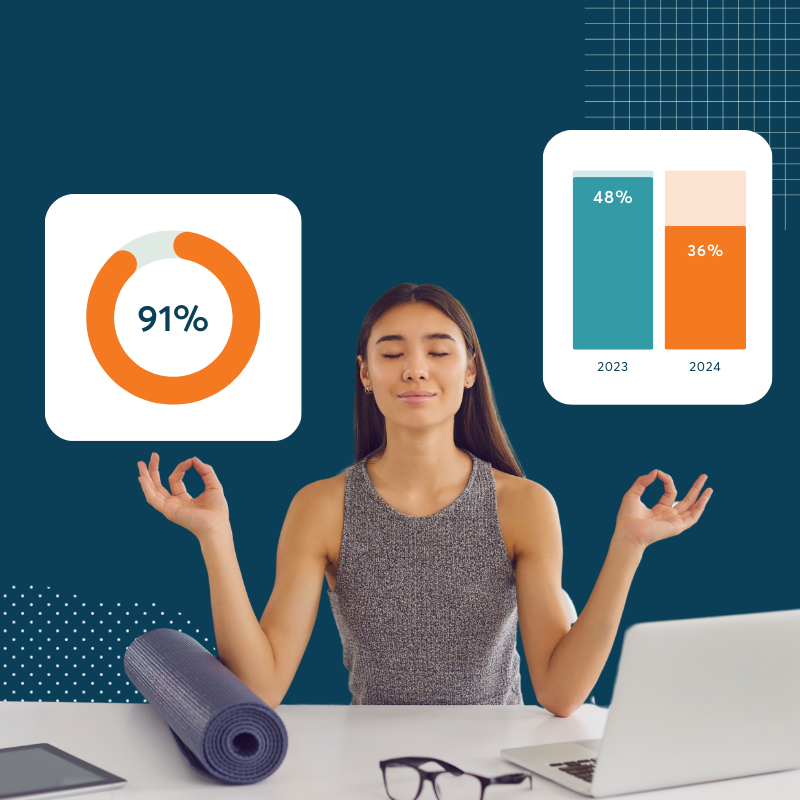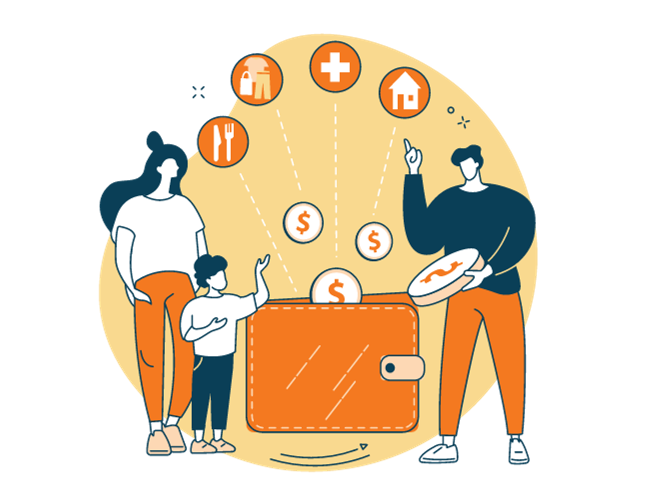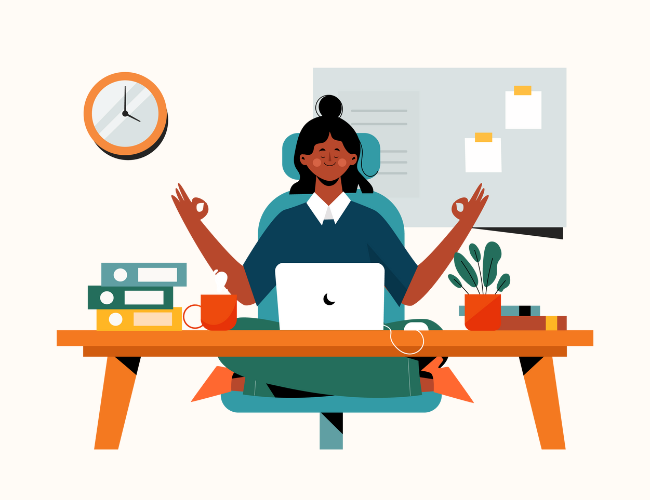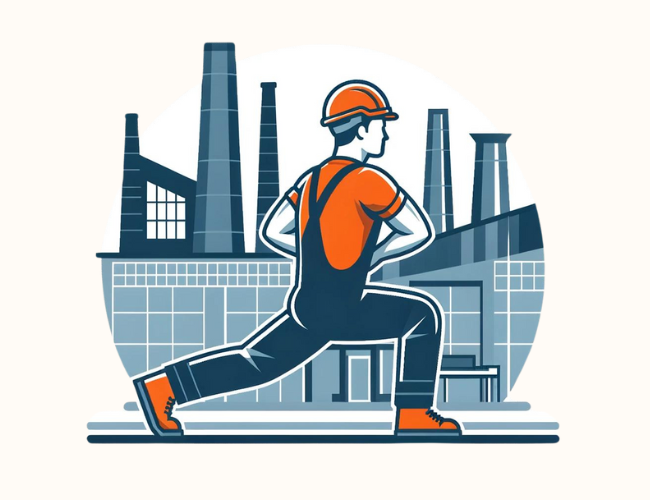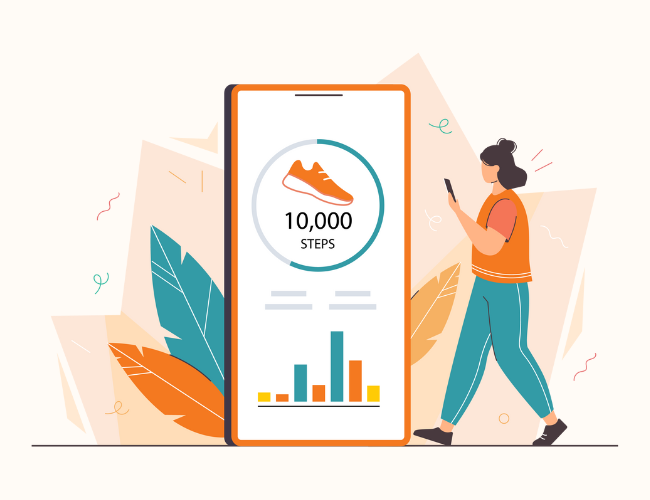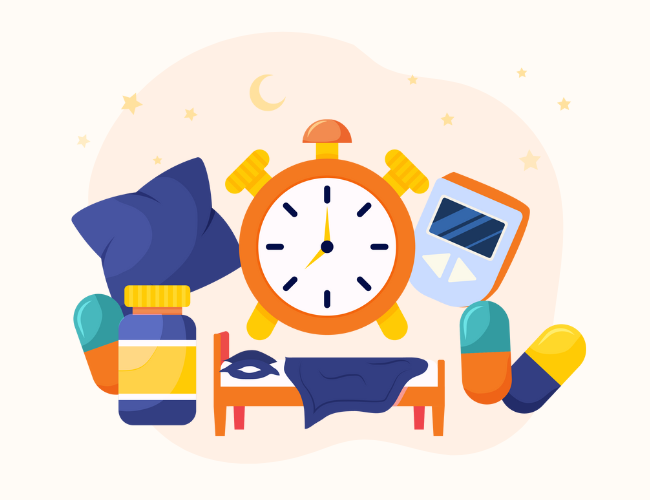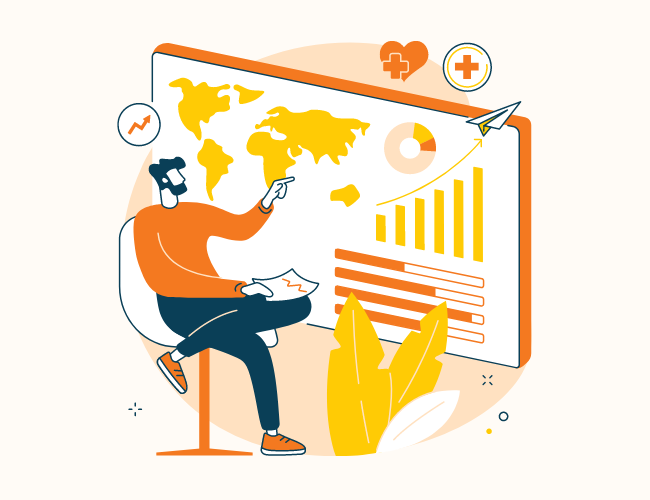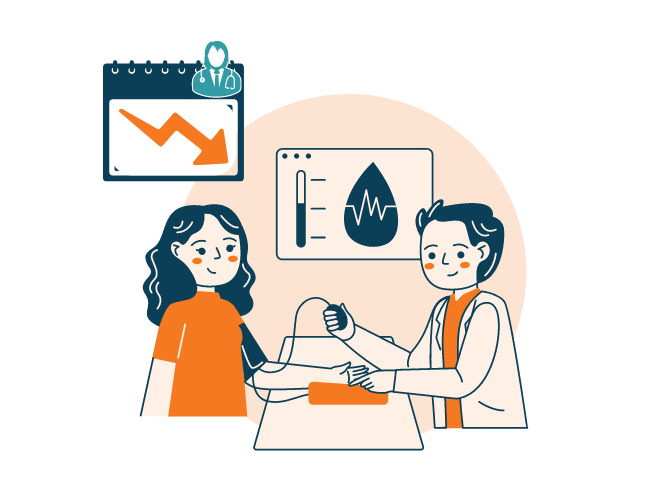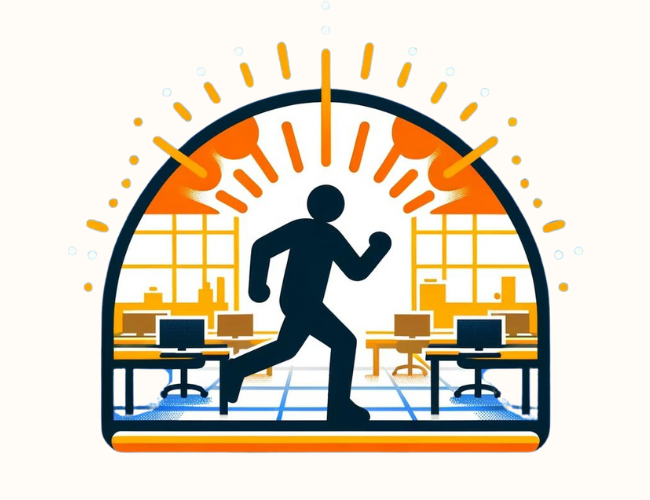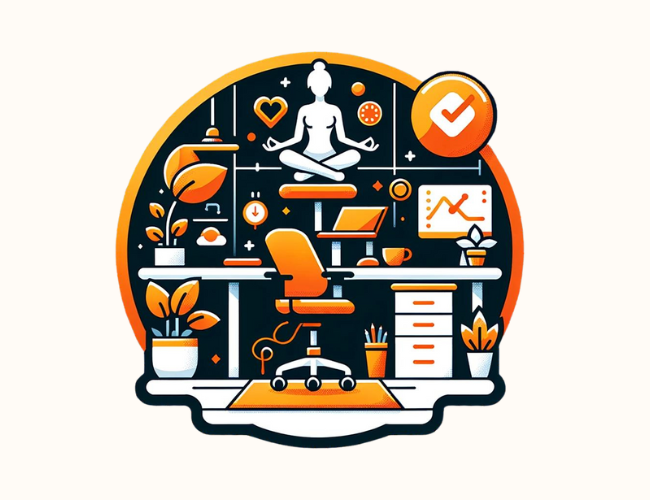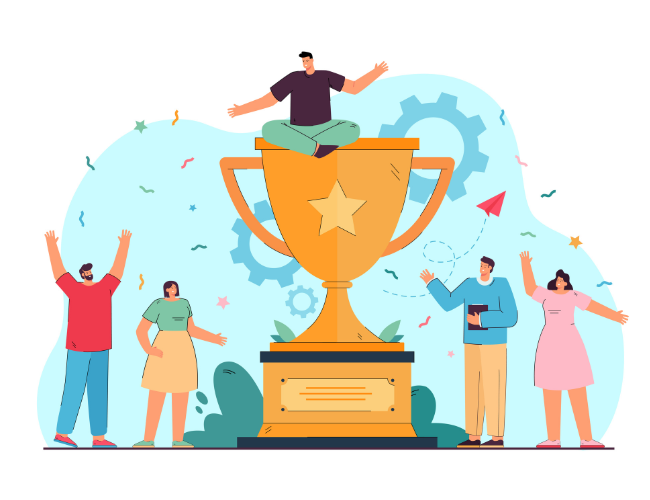A report from Oracle and the research firm, Workplace Intelligence, looked at how employees around the world are struggling with mental health issues and demanding support, as well as how artificial intelligence and technology may be used as solutions. Between July and August 2020, the report surveyed over 12,000 employees, human resource managers, and C-level executives between the ages of 22 and 74 years old from around the globe. The results overwhelmingly show a workforce that is dealing with unprecedented levels of stress and anxiety and one that would gladly turn to the support of artificial intelligence (AI) and technology to better support their mental well-being.
Seventy percent of respondents said that 2020 had been the most stressful year of their working lives, with 40% struggling to meet every day work demands such as pressure to meet performance standards, handling routine and tedious tasks, and dealing with unmanageable workloads. Over three-quarters (78%) said that the COVID-19 pandemic had negatively impacted their mental health by creating more stress (38%), burnout (25%), depression (25%), and loneliness (14%), as well as eroding a healthy work-life balance (35%).
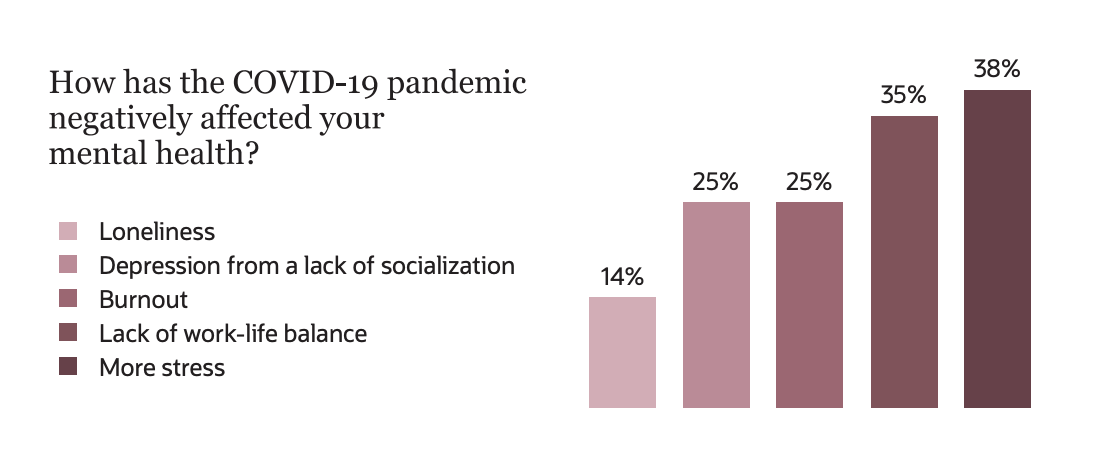
The impact isn’t confined to the workplace, with 85% of respondents reporting that mental health issues at work are negatively affecting their personal lives and are experiencing sleep deprivation (40%), reduced happiness at home (33%), suffering family relationships (30%), poor physical health (30%), and isolation from friends (28%).
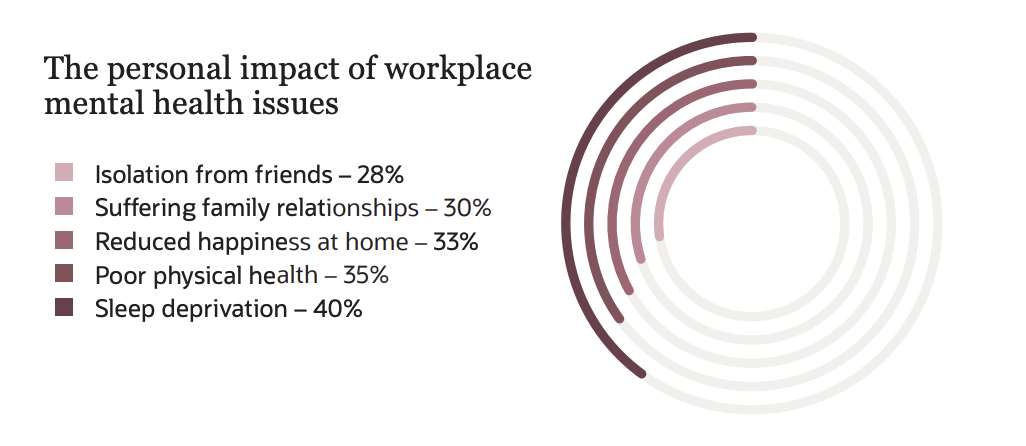
While mental health support has been rising in popularity for years, the pandemic brought these issues to a breaking point. In order to preserve the well-being, productivity, and performance of their workforce, companies need to offer and expand benefits and support resources as soon as possible. Technology is just one way to quickly and effectively implement much-needed solutions. In fact, the study found that 82% believe AI is better than humans at providing support. This includes help and guidance from chatbots, wellness and meditation apps, and fitness monitoring.
Employees Prefer Technology Over People
Over two-thirds (68%) of people say they would prefer to talk to a robot over their manager about stress and anxiety at work; even more (80%) would be open to having a robot as a therapist or counselor. Workplace Intelligence found that people favor mental health support from robots and technology because it provides a judgment-free zone (34%), an unbiased outlet to share problems (30%), and quick answers to health-related questions (29%). Often, people avoid seeking out help for mental health issues because they fear how they will be perceived, feel uncomfortable opening up to others, or don’t think anyone can offer practical help. A non-human solution mitigates these concerns.
Technology is also available 24/7; when a need arises, an employee doesn’t need to wait for an appointment. Especially if an employee is overwhelmed, they may not make time to seek professional help.
Three quarters say that AI has already helped their mental health by providing the information needed to do their job more effectively (31%), automating tasks and decreasing workload to prevent burnout (27%), and reducing stress by prioritizing tasks (27%). Most respondents also believe that technology improves work productivity (63%) and job satisfaction (54%). Over half (52%) of respondents believe that technology improves overall well-being, and the successes that people have seen at work with technology only add to the confidence they have when it comes to utilizing AI to solve issues around mental well-being.
Technology Can’t Solve Everything
Even outside of mental health-related benefits, the future of health interventions likely involves only more technology-based solutions. As the wellness industry grows, there undoubtedly will be more ways that the data and insights collected from health monitoring devices and self-assessments can be used. AI has the potential to deliver more personalized treatment plans and recommendations, while also being quick and accessible.
However, some things may be made worse by removing the human element. Technology isn’t foolproof. Certain nuances of an illness or condition can be missed that might only be picked up during an in-person evaluation. For example, when someone feels physically unwell but requested labs or tests don’t show any problems, AI might stop the search there. An inquisitive provider, though, might be able to read other cues from a patient’s body language or anecdotes that guide them to investigate further, eventually targeting the root problem.
Many people may find talking to a chatbot or robot as impersonal and unfulfilling, especially when it comes to more “human” experiences surrounding feelings of loneliness or family-related stresses. Additionally, while the data gathered from health technology might be able to make recommendations for a user, it doesn’t take into consideration their personal values or priorities. Some technologies might reduce a user to their demographics or health measurements; in reality, what that person wants to achieve might be different than what they statistically “should” want. In the end, companies will want to monitor employee engagement with their wellness programs, no matter the level of technology involved.
